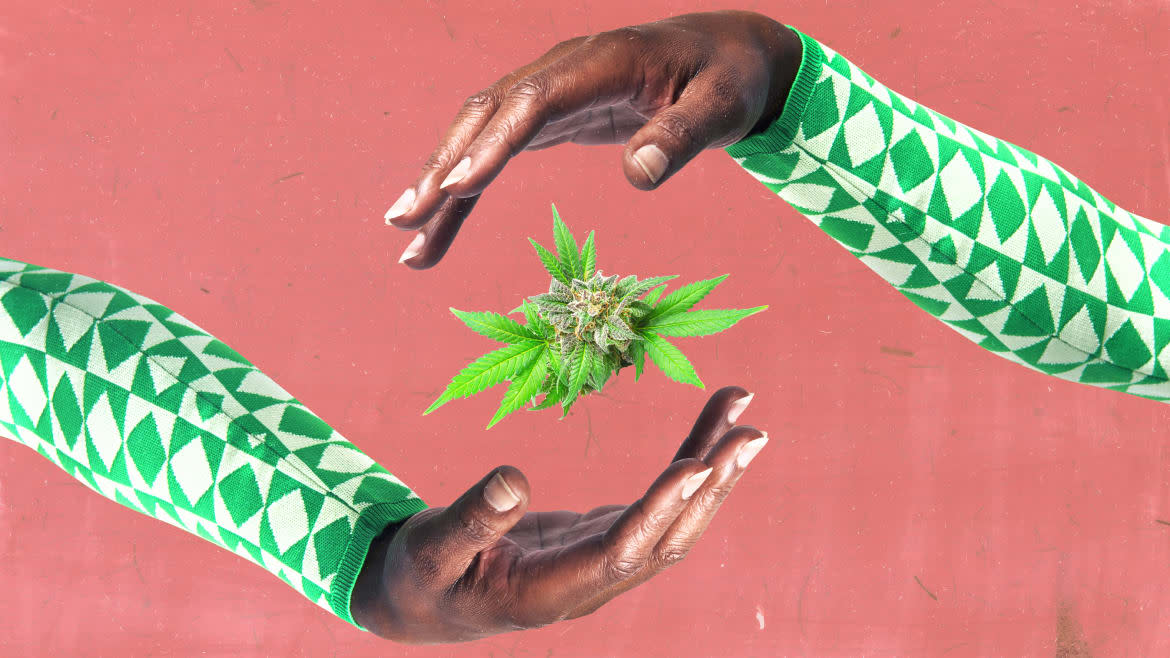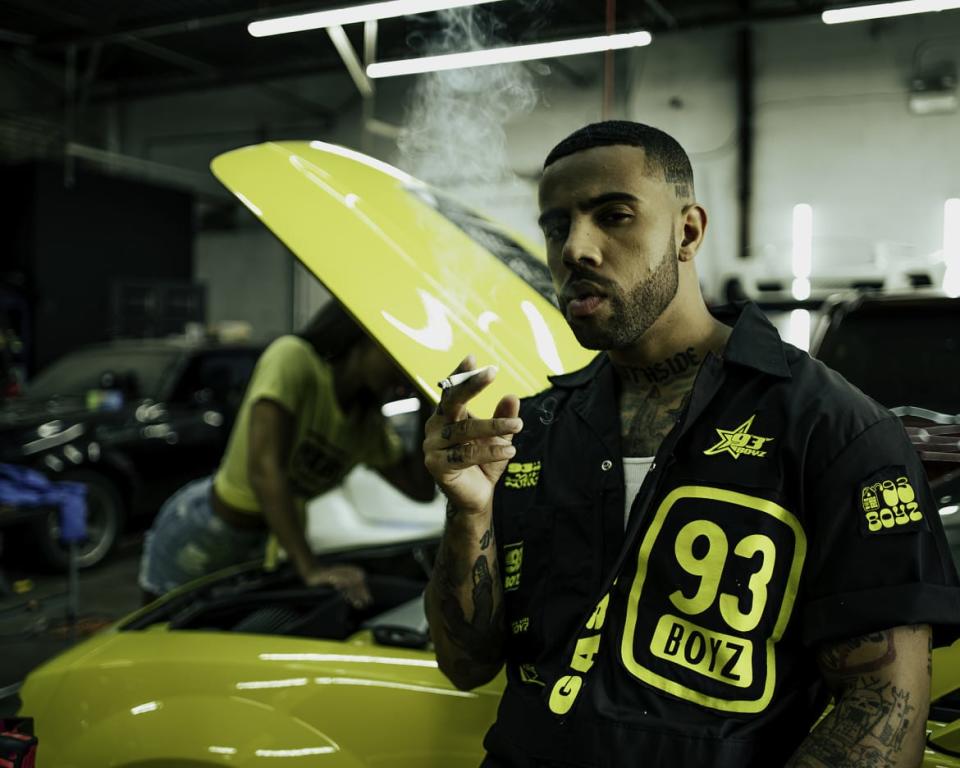Vic Mensa on Why America Needs Black Cannabis Ownership Now

Louis Armstrong’s soaring trumpet bounced from the walls like star beams reflecting from the moon, his melodies breaking into a million pocket-sized pieces. His reefer smoke curved backstage like the bosom of his white women, inspiring love and fear alike. That fear holds the key to one of America’s most notorious locked doors—a door that, to this day, keeps many men and women of African descent confined in soul-crushing cages in the modern-day iteration of this nation’s original sin.
The reefer madness propaganda used to disseminate fear of cannabis and criminalize its use was largely based on the plant’s association with jazz musicians and their magically non-traditional lifestyle, one that drew envy, applause, and everything in between from the hearts of their illustrious white audiences. Once the fearmongering campaign had been successfully implemented, and weed became intrinsically linked in the minds of America’s masses with crazed Black men and their quintessential psychological fantasy of the latter’s rape of white women, it has taken nearly a century—and undoubtedly thousands, if not millions, of ruined lives—for this nation to begin to end its draconian prohibition on God’s fruit of this Earth.
‘This Is Bullshit!’: Trevor Noah Livid Over Brittney Griner’s Russian Prison Sentence
Even in this moment of transformation, the momentum of the legal cannabis industry is not free of the vile hypocrisy that prevented its development for a hundred years, as the members of that community once represented by Satchmo and his contemporaries have been largely, if not entirely, excluded from participation in this billion-dollar business. Nationally, cannabis companies with Black ownership are less than 4%; in my home of Chicago they have been, up to this point, zero percent.
The launch of 93 BOYZ represents the first Black-owned cannabis venture in Illinois to sell flower legally on the shelves. This is a momentous accomplishment, and one that represents the manifestation of a lifelong dream of mine. I began selling weed at age 14 and prided myself on my strain-specific standard of quality, my packaging, and my customer service. To be carrying that torch 15 years later is indeed an extension of my teenage beginnings, as well as a continuation of Louis Armstrong’s bedrock.
The launch of recreational cannabis legislation in Illinois was paired with what was initially hailed as being the model “social-equity” program. This, in effect, meant that the process of expanding the state’s previously medical-only cannabis industry into an adult-use market intended to include the communities most impacted by the war on drugs, as well as structured to center reinvestment into those same communities. Three years and countless lawsuits later, it has become overwhelmingly obvious that the state has fallen tragically short of their stated intention. The scoring and awarding processes of applications have been marred by many inconsistencies, allegations of malpractice, and plain old corruption. As far as its focus on inclusion, the capital barriers to application alone have made it so that most people of my community are unable to have a fighting chance.

Vic Mensa for 93 BOYZ
As exciting as it is to be the first of my community to be selling cannabis legally in Illinois, it is also a travesty and an absolute aberration of justice to recognize that we have been the target of the plant’s prohibition, and are now being brazenly underrepresented in this booming industry. And one—or a few—of us being able to participate in the market does not satisfy the equity that we need. From the inception of 93 BOYZ, my intention has been to not only create an impactful entity in a space that is near to my heart, but to also use that entity as a vehicle for reinvestment into the community. The first initiative we are implementing is something we are calling Books Before Bars, a program that is sending select literary titles into Illinois jails and prisons.
As more Black-owned cannabis brands, cultivators and dispensaries become operational in the state, I think it’s imperative that we collectivize power, influence and resources, leveraging our unity to ensure that Black brands are receiving significant shelf space. In addition, we aim to find ways to empower and collaborate with people who are leading the charge for equitable reinvestment of the massive tax dollars the state is bringing in from cannabis, such as Richard Wallace and his EAT organization. His Big Payback campaign aims to see cannabis tax revenue used as literal reparations to communities that have been most impacted by the war on drugs.
Allen Russell is a Mississippi man who was sentenced to life in prison in 2019 for about an ounce of weed. Recently, his appeal was shot down and his life sentence upheld. As long as there are Black men in America being condemned to modern day slavery for the possession of a plant that is making white men billionaires, there can be no genuine discussion of justice and all proclamations of progressive policy must be viewed as insufficient.
As many hip-hop musicians step foot in the trails blazed by Satchmo and Cab Calloway, we must honor the sacrifices made in order to reach this point. Satchmo himself once sat in a California jail for marijuana; Brittney Griner was recently sentenced to nearly a decade in Russian prison for a vape cartridge. The anti-Black politicization of cannabis has globally been used to incarcerate so many that its commoditization must, in the same breath, whisper, speak, and scream freedom.
Get the Daily Beast's biggest scoops and scandals delivered right to your inbox. Sign up now.
Stay informed and gain unlimited access to the Daily Beast's unmatched reporting. Subscribe now.

 Yahoo Movies
Yahoo Movies 
